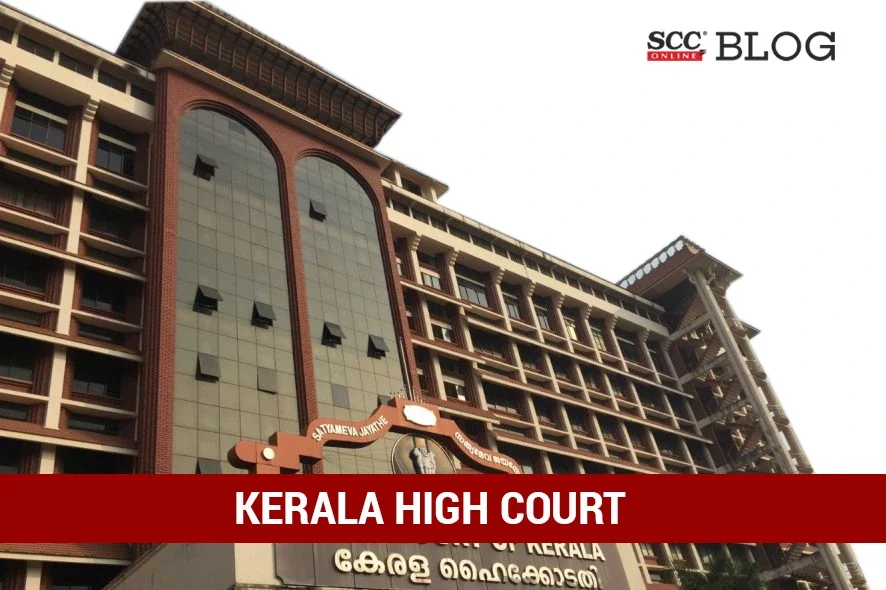Kerala High Court: In a Writ Petition challenging rejection of claim and seeking declaration that the petitioner belonged to Paniya caste and entitled to consequential benefits and issuance of community certificate, Viju Abraham, J. directed Kerala institute for Research Training & Development studies (‘KIRTADS’) to reconsider the matter and submit a report afresh after giving the petitioner an opportunity of being heard and conducting proper enquiry.
The petitioner in the instant matter was a B.Com student at a Thrissur College who allegedly belonged to ‘Paniya’ community, a recognized Scheduled Tribe community as per Schedule 2 to Constitution (Scheduled Tribes) Order, 1950. She was born in Paniya community and raised following tribal traditions with all the disadvantages attached to the tribe.
A caste certificate was issued to the petitioner’s mother belonging to Hindu Paniya community, while her father belonged to the Orthodox Syrian Christian Community. A certificate issued by Tribal Extension Officer on 22-06-2011 also revealed that the petitioner’s mother was granted an amount of Rs 42,000 for construction of a residential building in a Scheme specifically meant for the members of the ST community. The petitioner’s parents had a love marriage, and the petitioner was therefore born out of an inter-caste marriage. The petitioner’s parents were excommunicated by the petitioner’s her relatives, had no cordial relationship with them ever since their marriage, and she was raised within the cultural bounds of the Paniya Tribe, which resulted in the family being discriminated against socially as well as culturally, contributing to their socio-economic backwardness.
Her birth certificate revealed that she was born at Wayanad, her school admission registers and SSLC certificate revealed that she was a Christian converted from Hindu Paniyan community. She applied for a caste certificate on 30-06-2015, which was rejected based on enquiry which revealed that the petitioner and her family led a life distant from that of Paniya community.
It was contended that the petitioner resided at Wayanad from 2000 to 2006 and her mother constructed a house after receiving financial assistance for ST from government. Her mother had also received amounts granted to inter-caste marriage couples and was also covered under the Rice Distribution Scheme for ST under which, the certificate so issued also certified the petitioner to belong to the Paniya community.
However, the report submitted by KIRTADS was given against the petitioner. The same was challenged in Rabekka Mathai v. State of Kerala (WPC No. 21152 of 2017) wherein, KIRTADS was directed to reconsider the matter after affording the petitioner an opportunity of being heard.
After holding another enquiry with petitioner and her parents, another report also conveyed that she did not belong to the ST Paniya community of Kerala and belonged to the Orthodox Syrian Christian community. A Scrutiny Committee also rejected her claim and cancelled all community certificates issued earlier. Thereafter, order was issued by the Government holding that the petitioner did not belong to ST Paniya community and that the petitioner, and her siblings were not eligible for any of the consequent benefits extended to ST community.
The Court referred to Indira v. State of Kerala, 2005 SCC OnLine Ker 393 wherein, it was decided that “even if one of the parent belonging to Scheduled Caste/Scheduled Tribe community, the child is entitled for the benefit of the said community, but the crucial aspect to be considered is as to whether the claimant has suffered disability socially, economically and educationally and the society has accepted the claimant to their original fold as one among them and is living in the same social tenet.”
The Court perused all the documents wherein, the petitioner’s mother was certified to be a member of Paniya community, and her contentions that she was residing in a building constructed in Paniya Oorukootam, her birth certificate, another certificate issued by the Colony Head intimating that the community followed a matrilineal system and that the petitioner belonged to the Paniya Community.
The Court pointed out that none of such contentions were properly considered by KIRTADS while issuing the said reports but proceeded on general statements that generally in case of inter-caste marriage, the socialization process of the offspring of such couples is more attached to the high ranked father.
The Court regarded the two reports by KIRTADS to be prepared without adverting the relevant facts and circumstances of the particular case, and the government/Scrutiny Committee accepted the same without averting to the petitioner’s objections. The Court also supported the petitioner’s reliance on S. Paul Raj v. Tahsildar, Salem, 2021 SCC OnLine Mad 6091 to contend that change eof religion did not change the caste of a person.
The Court opined that the two reports prepared by KIRTADS were finalised without adverting relevant facts or conducting proper enquiry. Thus, the Court set aside the said orders/reports rejecting petitioner’s claim of being a part of Pania community and directed KIRTADS to reconsider the matter and submit a report afresh after giving the petitioner an opportunity of being heard and conducting proper enquiry. The Court also directed the Scrutiny Committee and State government to issue further orders accordingly.
[Rebeka Mathai v. State of Kerala, 2023 SCC OnLine Ker 5200, decided on 10-07-2023]
Judgment by: Justice Viju Abraham
Advocates who appeared in this case :
For Petitioner: Advocate Kaleeswaram Raj, Advocate Kum. Thulasi K. Raj.







